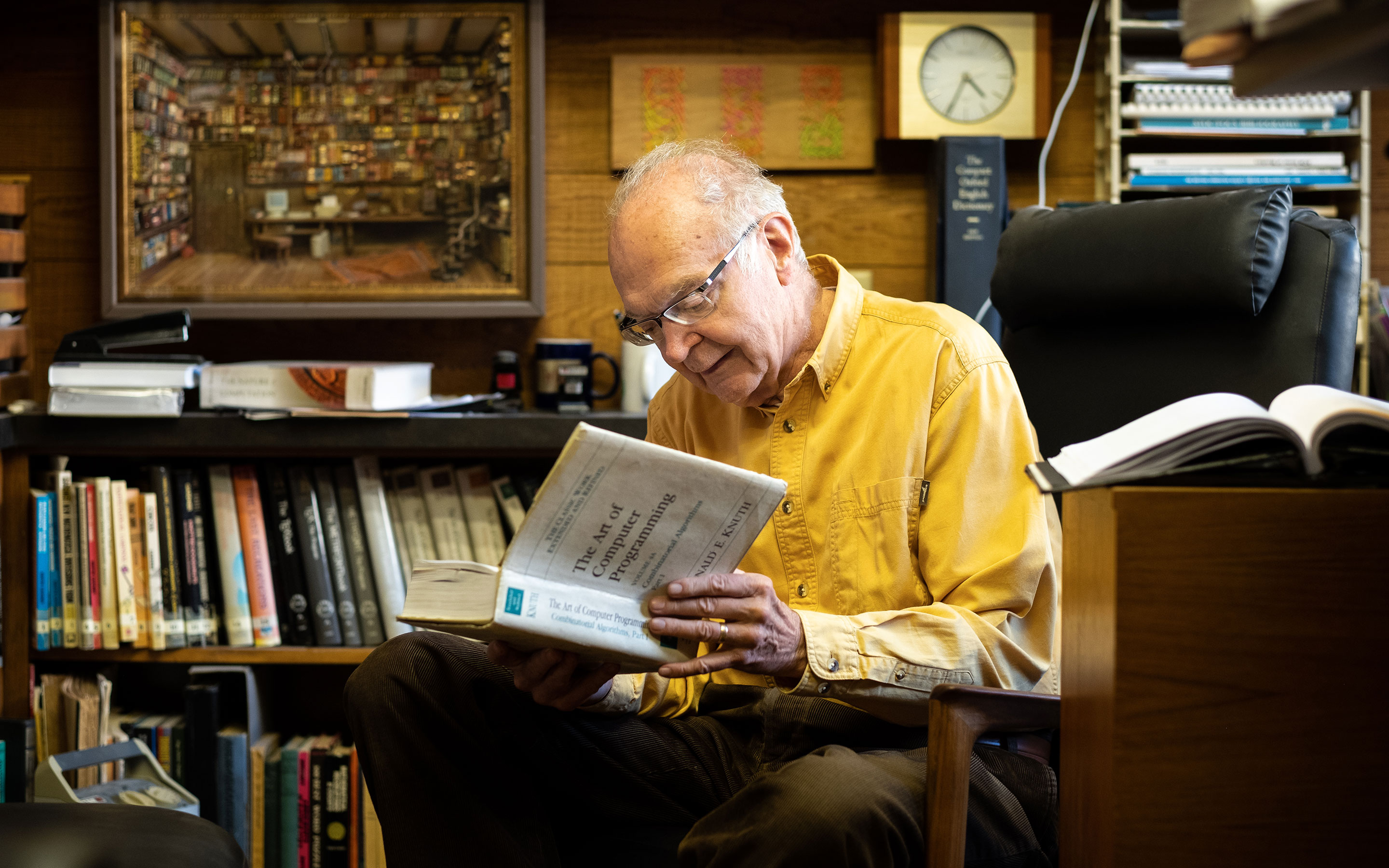Professor of the Art of Computer Programming: Who is Donald Knuth?
Donald Knuth is one of the world-renowned computer scientists. He was born on January 10, 1938, in Wisconsin, USA. Knuth, whose father works in a printing house, works with his father and attends school.

While attending Milwaukee Lutheran High School, he received awards in science and science. However, he won his first prize in a science competition at the age of 8.
Knuth, who started his education life primarily in the physics department, later changed his mind and continued in the mathematics department. In 1960, he graduated from school with a good grade for his work in the field of science and was entitled to receive the science award. Later, in 1963, he completed his doctorate in mathematics at the California Institute of Technology (Caltech).
His first scientific article was published in 1957 while he was at Stanford University. Prof. Donald Knuth continues his career by teaching and working at Stanford University.
Donald Ervin Knuth (born January 10, 1938) is an American computer scientist and mathematician. He is a professor emeritus at Stanford University. He is the 1974 recipient of the ACM Turing Award, informally considered the Nobel Prize of computer science. Knuth has been called the "father of the analysis of algorithms".
In 1968, he published the first volume of The Art of Computer Programming series, which was planned to consist of 7 volumes. This is also the year he started working as an academic at Stanford University. He continued to write other volumes of the series in the following years.
In 1990, he received the title of Professor of the Art of Computer Programming for his work.
Knuth, who is an extremely successful scientist, also has a very original character. He has not used an e-mail address since 1990. He made the following comment in the article explaining why he does not use e-mail:
Email is great for people whose role in life is on top of everything else. But not for me; My role is to be at the core of everything.
In the same letter, he also left a mailing address where he could be reached. He also stated that he sometimes used his secretary's account for e-mails.
Knuth has an interesting method for detecting errors in his book. More precisely, he encourages his readers to find these mistakes, not himself. It sends a reward of $2.56 for each error found. This charge is a reference to the hexadecimal number system. However, he can no longer send checks using this method to avoid falling victim to fraud. Instead, he created a fictitious bank and started depositing the award winners' certificates in the bank.
Knuth is a musician as well as a scientist. He plays the church organ and composes compositions.
Another important work he did was related to theoretical computer science. He is the creator of TEX, which is a very important program among academic studies and scientists in fields such as computer science, economics, engineering, linguistics, physics, statistics, and quantitative psychology. TEX is a program used to edit fonts and characters on the computer.
He also developed a program called Metafont, which identifies and translates fonts used on computers. In addition, he designed a special typeface for this work, which he called "computer modern".
Apart from computer programming, Donald Knuth also wrote a book called 3:16 Bible Texts Illuminated in 1991. This book talks about verses in the Bible.
He discussed mathematics in his book titled Surreal Numbers, which he wrote in 1974.
